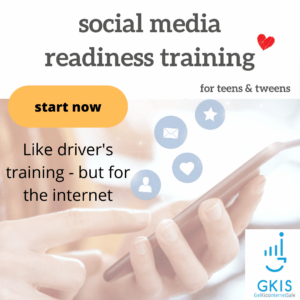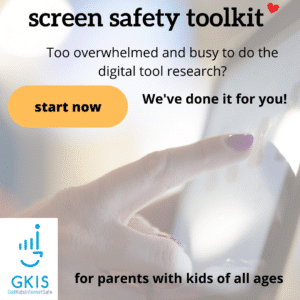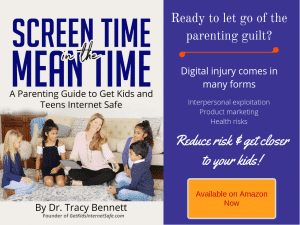
Today’s world seems far more complicated for kids than it was for us. No longer is a kid’s stomping ground only as big as his neighborhood. With the Internet, kids interact with strangers every day from all over the world. Global real-time connection creates profound learning opportunities. But with opportunities comes risks. Locking doors and windows is no longer enough. Screens are the danger portal. Today’s article tackles the controversy about monitoring kids’ online activity. Should you monitor teen texts or not? And if you do, should you keep it on the down-low from your kids?
3 Types of Digital Parents
The free-range/permissive parent argues that we must trust our kids by being “eyes off” their digital activities, allowing kids to make and learn from their own online mistakes. They feel that failure and recovery results in resilience.
The helicopter/authoritarian parent argues that kids don’t have the judgment to go it alone. The risks are too dangerous. Parents must monitor with vigilance, ready to intervene at any moment. They further believe that parents have the right to withhold information about monitoring in order to access the good stuff. If kids know of the monitoring, they’ll backchannel forbidden conversations, effectively cutting parents out of the loop.
The authoritative parent believes that monitoring is necessary due to the dangers on the web and the impulsivity from an immature brain, but also believes in honesty and transparency about monitoring. Honest discussion provides opportunities for teaching critical skills and providing the content necessary for ongoing, cooperative parent-child dialogues about Internet safety.
GetKidsInternetSafe and TeenSafe Belief Systems
As creator of GetKidsInternetSafe and a psychologist who sees the fallout from all types of parenting strategies, I recognize that each argument has its legitimate strengths. Each child is different; each parent is different; each family is different. However, for the typical family I whole-heartedly advocate for authoritative parenting.
When the founder of TeenSafe, Scott Walker, first contacted me several years ago, we had a heart-to-heart talk about the parenting strategies we use in our own homes. TeenSafe is the first and leading independent smartphone control and monitoring service for parents. In fact, I had been using TeenSafe with my family and had been recommending it to GKIS subscribers for several months before me and Scott met. I was pleased to find that we agreed that only parents can make best, informed decisions about their families, while still believing that open and honest tech monitoring with awesome parenting strategies are keys to achieving Internet safety.
Scott shared a story about how he founded TeenSafe based on a painful experience in his family where his daughter was the victim of a vicious cyberbully campaign at her new school. I shared stories from my practice of devastated families victimized by pornography, sexting, and predation by pedophiles and human traffickers. We also shared that with our teens, we simply didn’t feel comfortable leaving them untethered in the scary World Wide Web, and that lying to them or excessively intruding on their online peer relationships seemed dishonest and hypocritical. Bottom line, we shared the mixed feelings and parenting dilemmas faced by our subscribers.
Dr. Tracy Bennett is named Global Ambassador for TeenSafe
Today I’m happy to announce that several years after our first meeting, TeenSafe has invited me to be their Global Ambassador. TeenSafe and GetKidsInternetSafe are natural partners for offering expert screen management strategies to parents. Here are my top reasons why I think authoritative parenting is the best strategy for building healthy family relationships, and why monitoring and managing screen use is a necessary parenting task.
Dr. B’s Top 4 Reasons Parents Should Use TeenSafe AND Tell Their Kids About It
The most powerful tool for a child’s education, skill building, and emotional well-being is a fun, safe parent-child relationship. Build it don’t threaten it!
Nobody is as motivated and equipped to teach important life lessons to kids as their parents. In order to have maximum positive influence, parents must deliberately build a cooperative dialogue and warmly support negotiative process. By telling your kids that you have a monitoring system in place at the very beginning of their digital identity building, you will reinforce that nothing online is private. Studies show that knowing their parents are monitoring them helps kids moderate their own online behavior. They are more likely to think before they post.
Furthermore, kids are more likely to bring up important discussion topics if they know their parents have seen it come up in their texts. Each conversation is a mutual, bi-directional learning opportunity, setting parents and teens up as teachable moment partners instead of adversaries. Kids may not like that their parents monitor, but just like with other household rules, they’ll appreciate that it’s justified and necessary and will ultimately feel loved. When they do slip (and they will), parents can prevent costly lapses in judgment.
TeenSafe monitoring is a powerful tool all by itself, but when it alerts parents that it is time to have particular conversations, it is an even more awesome tool.
Parents are too often the last to know. We tend to believe our little darlings are incapable of despicable behavior until it’s too late. Parents often dread certain conversations. When parents see inappropriate content on their kids’ texts, it triggers critical conversations as needed. Good timing helps kids develop moral perspective and sound judgment.
Monitoring not only shows what kids text, it also shows what they receive (posting, viewing, and interactive content). Parents get a window into their whole virtual child.
Kids often use the, “You don’t trust me” accusation to scare parents off their trail. Don’t fall for this manipulation. Respond with the truth, like “I don’t even trust myself to use great judgment all of the time, so yes, I guess I don’t have 100% confidence that you won’t make costly mistakes online. For that reason, I’m going to keep an eye out with you and help out until you’re older.”
If parents see the everyday virtual happenings of their kids, they’ll have a much more realistic and informed understanding of teen dilemmas. The virtual world is chock full of ugly, mean, and vulgar behaviors. Buckle in and get ready to see some awful behavior from good kids. It is simply the virtual culture, like it or not.
Modeling family values and maintaining credibility is essential for a fun, happy, healthy parent-child relationship. That means parents must practice what they preach.
Kids are unhappy about being monitored certainly, but so what. There are many important authoritative parenting decisions that will be made throughout their childhood they won’t be thrilled about. If justifiable and managed respectfully, they’ll get it. What they might not get is a parent who lectures about never sneaking and lying all while they are sneakily monitoring and lying about it (helicopter/authoritarian parents); or even worse, a parent who simply doesn’t care (free-range/permissive parents). Younger screen users require more monitoring while older teens need less and less. By 17 years old, most teens have the skills to manage their own texts while still needing support to avoid texting and driving.
To learn how TeenSafe keeps teens safer behind the wheel, check out my article How to Help Your Teen Stop Texting and Driving.
I’m the mom psychologist who helps you GetKidsInternetSafe.
Onward to More Awesome Parenting,
Dr. Tracy Bennett
Don't worry, we will never spam you.









